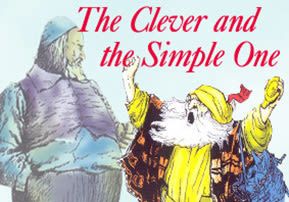
Rebbe Nachman’s Stories:The Clever and the Simple
Once there were two householders in one city, who were very wealthy. They had large houses, and each one of them had a son, both of whom studied in the same...

Once there were two householders in one city, who were very wealthy. They had large houses, and each one of them had a son, both of whom studied in the same classroom. Now one of these sons was bright, and the other was simple-minded. (He was not foolish, only that his intellect was simple and of a low level). These two sons loved each other very much. In spite of their great difference in intellect, they loved each other very much.
As time passed, the two householders began to lose their wealth. They sank further and further, until they became destitute, and were left with nothing except their houses.
The sons began to grow up. So the fathers said to their sons, "We do not have the ability to pay the expenses to support you. You will have to fend for yourselves."
The simple one went and learned shoemaking. And the clever one, who had a sharp mind, did not desire to do mundane work like this. So he decided to go out into the world and look for something to do. He went and wandered through the market. There he saw a large carriage with four horses traveling along.
He spoke up and said to the tradesmen, "Where are you from?" They answered that they were from Warsaw. "And where are you going?" They responded: to Warsaw." He asked them, "Perhaps you need a helper?" They saw that he was intelligent and energetic, and he found favor with them, and they accepted him. So he traveled with them serving them very well along the way.
When they came to Warsaw, since he was intelligent, he considered to himself, "Being that I am already in Warsaw, why should I be tied to these people? Maybe there is something better. I will go and ask and see." So he went to the market, and he began to investigate and ask about the people who had brought him, and if there are people better than them to work under. They answered that these people are upright, and it is good to be with them. However, it is difficult to work with them because their dealings are done over great distances.
He went and saw men from the clothing business who were passing through the market in their fashionable style. They donned various adornments – their hats and their sharp-pointed shoes, and their other refinements, in the way they walked and dressed. He had a sharp intellect, and this work appealed to him because it had grace, and also it was done in one's own home. He returned to the people he had come with, gave them his respects, and told them that he would not be continuing with them. And as for their having brought him here, he had served them along the way.
He went and started to work under one businessman. And as is the way of hired servants, in the beginning they need to work for little pay, and do difficult work. Then afterwards they reach the level of established servants. His employer gave him hard work, and he would send him to customers bearing merchandise as is customary for servants. They need to hold their arms upraised, draping the garments along their arms' length for the customers to see. This work was very difficult for him to bear. Sometimes he would need to climb up many flights of stairs with his load, and the work was very hard for him. So he considered to himself – for he was a highly intelligent philosopher: "Why should I do work like this? Truly, the main point of working is to achieve the goal of getting married and supporting oneself. And I do not need to be concerned about this yet. I will have time to deal with it in the future, in the years to come. In the meantime, I am happy to wander the land, in different countries, and to have my fill of the world."
He went through the market, and saw a large trading carriage passing by. He asked them, "Where are you going?" "To Lagorna." "Would you take me there?" "Yes." So they took him there, and from there he sailed to Italy, and from there to Spain. In the course of this, several years passed, and thus he became even wiser, for he had been in many countries. Then he thought to himself, "Now it would be good to think about the goal."
He started to consider, with his philosophical analysis, what he should do. He found it fitting to learn to be a goldsmith. It is a major business, and attractive, it demands wisdom, and it is also very profitable. Because of his high intelligence and philosophical ability, he did not need to learn several years. In only a quarter of a year he completed his study and became a very superior artisan. He was more expert in the work than the one who had taught him.
Then he thought to himself, "Even though I now have this skill to depend on, it is not enough for me. Today this work is in demand, perhaps in the future something else will take its place." So he went and found work with a gem cutter, and because of his quick mind, he learned this also in a short amount of time – a quarter of a year.
Afterwards, he speculated philosophically, "Even though I have two trades, who knows if both of them might fall out of demand. Better that I learn a trade that will always be important." He concluded, with his understanding and philosophy, that he should learn to be a doctor, which is always needed and important. And it is customary that before learning medicine, one must learn Latin, and how to write, and the wisdoms of philosophy. And because of his understanding, he also learned this in a short amount of time – a quarter year. He became a great doctor, and a philosopher learned in all the wisdoms.
Afterwards, the world began to seem insignificant in his eyes. For because of his wisdom, being so skilled and professional, a wise man and a doctor, all the people in the world seemed insignificant to him. He began to think about fulfilling his goal and getting married. He thought to himself, "If I marry here, who will know what became of me? I will go back to my family, so they will see what I have become. I was only a young man, and now I have come to such greatness!"
So he went and traveled to his family's house, and suffered intensely along the way. For because of his wisdom, he had no one with whom to talk, and he could not find lodgings according to his taste, and so he had much suffering.
Now, let us leave the story of the clever one for the time being, and we will start to tell the story of the simple one.
The simple one learned the trade of shoemaking. Because he was simple, he learned a long time until he was able to accept work, and even then he was not fully expert. He married a woman, and he lived off of his work. But because he was simple, he was not so talented in the work, and therefore his earnings were meager and limited. He did not even have time to eat, because he had to work constantly, since he could not do the work skillfully. So while he worked, hitting with his hammer, and inserting and drawing out the thick thread in the way of shoemakers, he would snatch a bite of bread to eat.
He had the habit of being very happy all the time – he was filled with happiness always. He had all the kinds of food, all the drinks and all the clothing he wanted. He would say to his wife, "My wife, give me to eat!" She would give him a piece of bread and he would eat. After this, he would say, "Give me beans in sauce!" She would cut him another slice of bread, and he would eat. Then he would praise it: "How fine and tasty was that sauce!" And so he would command her to bring him meat and other fine foods, and in place of each item, she gave him a slice of bread, and he delighted very much from it. He would praise each food extravagantly, saying how well prepared and good it was, as if he was eating the actual food. In truth, he really tasted in the bread the taste of each food he wanted, because of his simplicity and great happiness.
Likewise he would command: "My wife, give me beer to drink!" She would give him water. And he would praise the quality of the beer. "Give me honey!" She gave him water, and he would praise it as before. "Give me wine!" and so on. Each time she would give him water, and he would enjoy and praise that beverage as if he were really drinking it.
And so with clothing: He and his wife together shared one fur coat. He would say, "My wife, give me the fur coat!" when he needed to wear a fur coat, for example, to go to the market. And she would give it to him. When he needed to wear a suit to go in formal settings, he would say, "My wife, give me the suit!" She would give him the fur coat, and he would delight in it and praise it: "How fine is this suit!" When he needed a caftan, for example, to go to the synagogue, he would command, saying "My wife, give me the caftan!" And she would give him the fur coat, and he would praise it, saying "How fine is this caftan!" Similarly, when he needed to wear a formal overcoat, she would also give him the fur coat, and he would praise and delight in it as well: "How fine and beautiful is this overcoat", and so on. And he was always filled only with joy and satisfaction.
When he would finish a shoe (and it can be assumed it had three ends, for he had not mastered the craft), he would take the shoe in his hand and praise it highly, and would take great delight in it. He would say, "My wife, how beautiful and wonderful is this shoe! How sweet it is! This shoe is as sweet as honey and sugar!"
Then she would ask him, "If so, why do all the other shoemakers charge three gold pieces for a pair of shoes, and you take only a piece and a half?"
He answered her, "What does it matter to me? That is his affair, this is mine!" And further: "Why must we talk about others? Why don't we make an estimate of how much direct profit I make from this shoe? The leather costs so much, the tar and the laces, etc. cost such and such, and the other materials like those cost that much, the filler costs that amount. Now, I make a direct profit of ten gedolim. Why should I complain with a profit like that?!" And he was only joyful and satisfied all the time.
For the rest of the world, however he was an object of ridicule, and people satisfied their craving to mock through him, having found someone to deride according to their desire. For in their eyes, he appeared a madman. People would come to him, and they would engage him in conversation with the intent of mocking him. Before speaking with them, he would stipulate, "Just without mockery!" Immediately when they responded to him without mocking, he would accept their words and begin talking with them. For he did not want to go any deeper into the matter and speculate about their intent, for that in itself would be a form of mockery, and he was a simple man. And when he saw that their intent was to mock, he would say, "If you were wiser than me, what would that make you? You would still be fools, for who am I anyway? So if you were wiser than me, on the contrary, you would be thought of as a fool!" (All this was a description of the simple one. Now let us return to our first subject.)
In the midst of this, a great commotion arose, that the clever one was on his way to visit here, with great honor and wisdom. The simple one ran like the others to greet him, with great joy, and he said to his wife, "Quick, give me the overcoat. I'm going to greet my beloved friend." She handed him the fur coat, and he ran to greet him.
Now the clever one was traveling in a royal carriage in a high style. The simple one reached him and lovingly, joyously asked after his welfare. "Brother, my dear friend! What are you doing here? Blessed is the One who brought you, and granted me to see you!"
Now for the wise one, to whom the whole world was insignificant, it was all the more so with a man like this, who seemed like a lunatic. Yet in spite of this, because of the great love of their earlier years, he drew him close, and they traveled together through the city.
The two householders mentioned at the beginning of our story – the fathers of these two sons – died while the clever one was wandering through the world, and left their houses behind. The simple one, who had remained in his hometown, had moved into his father's house and inherited it. But the clever one, who had been abroad, had no one to claim it on his behalf, and it became abandoned, and nothing was left of it at all. Therefore, the clever one did not have a place to stay upon his return to his town. He lodged in one inn, and suffered much there, because the inn was not according to his desire.
The simple one had found himself a new pastime – he would run back and forth from his house to the wise one, in love and joy. He saw the suffering the clever one was enduring in the inn, and he said to him, "My brother, why don't you come and stay in my house? I will gather everything of mine into one corner, and the rest of my house will be free for you to use." This pleased the clever one, so he came to his house and stayed by him.
Now the clever one was constantly filled with agony. For it became known that he was a magnificently intelligent man, a craftsman and a very great doctor. One nobleman came to him and asked him to make him a gold ring. He made the man a very wondrous ring, and engraved on it illustrations with incredible workmanship, and he engraved an image of a tree that was very impressive. The nobleman came, and was not at all pleased with the ring. He had much suffering from this, for he himself knew, that if this ring with the tree would be seen in Spain, it would be very honored and important.
And, another time, a high-standing noble came to him with an expensive precious stone, that came from far away, and he brought him another stone with an engraving. He asked the clever one to copy the image from the illustrated stone onto the other one. And he copied it exactly, barring one mistake that no one else would be able to discern aside from himself. The noble came to take the stone, and was very pleased with it. But the clever man suffered intensely from the mistake. "My wisdom is so great, and yet I made a mistake such as this!"
Also from his work as a doctor he suffered. When he came to a sick person, and gave him a treatment, and he knew with certainty that if the man would only survive, he would be healed entirely, because the treatment was an amazing one. Then afterwards, if the man died, everyone would say he was at fault, and he suffered intensely from this. And thus, there were times when he treated a man and cured him, and everyone said, "It is just by chance." And he was constantly filled with suffering.
One time he needed a garment, so he called upon a tailor, and toiled with him until he taught him to make the garment according to his desire, according to the style with which he was familiar. The tailor strived to make the garment according to his wishes, and succeeded with the exception of one lapel in which that he erred. The clever one suffered exceedingly from this, for he knew that although here it was attractive enough, for people here were not versed in fashion, if he were in Spain with that lapel, he would be the butt of jokes and he would be looked on as a clown. And so he was constantly filled with agony.
And the simple one would run and come to him joyfully, all the time. He always found him pained and full of suffering. He asked him, "Someone so wise and wealthy as you, why are you suffering all the time? You see, I am filled with joy all the time." However, he appeared in the eyes of the clever man as a joke, and as a lunatic. And the simple one said to him, "You see, the average man who mocks me is a fool. For if he is wiser than me, than to the contrary, he is a fool. So all the more so a clever man like you. What would you be if you were wiser than me?" Then the simple one said, "What would I not give for you to come to my level?" The clever one answered him, "That is possible, that I will come to your level, if I were to lose my intelligence, God forbid, or if I became sick, God forbid, and became insane. For what are you? A crazy man! But for you to come to my level, that is totally impossible – that you would become wise like me."
The simple one answered him, "With the Holy One, Blessed be He, anything is possible. It could happen that within the wink of an eye I would come to your level." The clever one laughed at this a great deal.
Now these two sons were known in the world as "the Clever One" and "the Simple One". Even though there are many clever and simple men in the world, in this case it was especially recognized. Everyone was aware that they both came from the same place, and they had both learned together, and one of them had become awesome in intellect, and the other was an extremely simple person. In the census book, in which were written all the names of the people of the nation, these two were identified as the Clever One and the Simple One.
In came to past that the King came upon the census book. He found there the names of the two sons, one with the name "Clever One" and the other, "Simple One". And it was a wonder in his eyes, that these two were identified by these names, and he had a craving to meet them. He thought to himself, "If I send for them suddenly to come before me, they will be very frightened. The clever one will lose his clarity completely, and the simple one might possibly go crazy from fear." So he decided to send a clever messenger to the clever one, and a simple messenger to the simple one. The only problem was how to find a simpleton in the capital city. Most of the people in the capital are sophisticated, except for the Treasurer, who is by intention a simpleton. They do not appoint a clever man as treasurer, lest through his wisdom and intelligence, he comes to waste away the treasury. Therefore they specifically appoint a simpleton to be Treasurer.
So the King called to a clever man and to a simpleton, and sent them to the two sons of this story. And he gave to each messenger a letter. Also, he gave them letters addressed to the local governor of the province of the sons, and ordered the governor to send his own letters to them, so that they would not fear. He should explain to them that the matter is not urgent, and that the King is not commanding them to come, rather it is dependent on their own choice: If they want to come, they may. Only that the King desires to see them.
These two messengers set out and traveled to the governor, giving him the letter. The governor asked to know more about the two sons. They told him that the clever one is incredibly bright, and very wealthy. And the simple one is exceedingly simple, and his whole wardrobe consists of one coat. The governor judged that it would not be fitting for the simple one to appear before the King in his old coat. So he provided him with appropriate clothes, and placed them inside the royal carriage of the simple messenger. And he gave the messengers letters, and they set off for the town of the two sons. They gave them the letters – the clever messenger to the clever son, and the simple to the simple.
As soon as the simple one received his letter, he said to the messenger that brought it, "I cannot read what is written there. Read it for me!" The messenger said, "I will tell you in brief what is written there: That the King wants you to come to him." The simple one said, "Just promise me that you're not joking!" He answered, "It is certainly the truth, and not a joke." And he immediately became filled with joy, and ran to his wife, saying, "My wife, the King has sent for me!" She asked, "Why, on what account?" But he did not have time to answer at all, and hurried joyfully and traveled with the messenger. He entered and sat inside the carriage and found the new clothes, and became more and more joyous.
Meanwhile, news was passed on about the governor that he had behaved corruptly. So the King removed him from office. The King considered and decided that the governor ought to be a simple man, who would govern the state with truth and uprightness, not knowing wisdoms and innovations. The King came to choose the simple son, and he sent a letter to the simple messenger, that the simple son was to become governor. His route of travel passed through the governor's city, so the King posted men at the gates of the city. As soon as he arrived, they were to detain him and crown him with the title of governor. So they did: They waited there, and as soon as he came, they detained him and informed him that he had been made governor. He asked them, saying, "Just promise you're not joking!" They answered that it was certainly not a joke. And he immediately became governor, with authority and might.
Now that his fortune had turned, and a change of fortune brings wisdom, so he gained more understanding. Even so, he did not use his wisdom at all, but rather ruled with simplicity as at first, and led the country simply, with truth and uprightness, and had not a trace of corruption. And to rule a nation, one does not need a high intelligence and cleverness, only simplicity and uprightness. When two would come before him with a case to be judged, he would say, "You are innocent and you are guilty," according to his true simplicity, without any cleverness or deception. And so he ruled all with the quality of truth.
The people loved him very much. And he had advisors who were true friends, and due to his love, one of them advised him: "Seeing that you will certainly have to come before the King – first, because he sent for you, and second, because it is customary for the governors to appear before him. Thus even though you are very satisfactory, and you have no corruption in your ruling of the state, even so, it is the way of the King to speak in a sophisticated fashion, and to speak in other languages. Thus it would be appropriate and well-mannered for you to be able to respond. So, it would be good that I should teach you wisdoms and languages." The simple one found this agreeable, saying, "Why should I mind learning wisdoms and languages?!" Immediately he thought of the words of his friend the clever one, that it would be impossible for him to come to the clever one's level. And now he had already reached the other's wisdom (and even so, though he already knew much wisdom, he did not use it at all, rather ruled everything with simplicity as at first).
After this, the King sent for the simple one (who was now governor), that he should come before him. So he traveled there. The King started off talking with him about the governing of the country, and the King was very pleased, for he saw that he was ruling with uprightness and great truth, without any corruption or deception. After this, the King began to speak about various disciplines of knowledge and languages, and the simple one answered him appropriately, and found more and more favor in the King's eyes. The King said, "I see that he is such a brilliant man, and yet he rules with such simplicity!" And it was very pleasing to the King. He appointed him to be a minister over all the ministers. He set aside a specific place, where would be his chair of office. He commanded to be built beautiful and extravagant buildings to house his administration. And he gave him a letter testifying to his position – that he should be a minister as described. And so it was: They built him the buildings, in the place where the King had commanded, and he went and accepted his honors with authority.
Now the clever one, when he received the letter from the King, answered to the messenger who brought it, "Wait and stay here the night, and we will talk and consider together." In the evening, he made him a festive meal. During the meal, he drew on his wisdom and philosophy, and said, "What is this, that a king such as this would send after me? After a lowly person such as I, and who am I, that the King would send for me?! Behold, he has such authority and power, and I am lowly and foul in comparison to such a great and awesome king as this. How could it be explained, that a king such as this would send after a lowly one such as I? If it is because of my wisdom, what am I compared to the King? And does he not have his own wise men? The King himself must be very wise, so how could it be that he is sending for me?" And he was very bewildered by this. Then he spoke up and said to the clever messenger, "Listen to what I say. In my opinion, and it is certainly clear and can be proved, the King does not exist at all. The whole world is mistaken in this nonsense, believing that there is a king. Consider it, how could it be possible that all the people of the world would allow themselves to depend on one man, who is the king? Certainly there is no king at all."
The clever messenger responded, "But wait! I brought you the letter from the King!" The clever one asked him, "Did you receive the letter directly from the King?" He answered "No, someone else gave me the letter in the name of the King." So he said to the messenger, "There, you see with your own eyes, that my words are correct, that there is no king at all." Then he asked him further: "Tell me, you are from the capital city, and lived there all your life. Did you ever see the King?" He answered "No." (For in truth not everyone merits to see the King, for the King only appears in public very rarely). The clever one said to him, "You see that my words are clear and accurate, it is certain that there is no king at all, for even you have never seen the King in your life."
The clever messenger continued and asked, "If this is true, then who runs the country?" The clever one answered him, "I'll give you the explanation. You asked the right person, for I am an expert in this, because I wandered through various countries, and I was in Italy. The custom is that there are seventy advisory positions, and these offices are held for a limited time. All the citizens of the country have a turn as an advisor, one after the other." His words began to make an impression upon the messenger, until he agreed, and they decreed that there is no king in the world at all.
Then the clever one said, "Wait until the morning, and I will show you one proof after another, that there is no king in the world at all." The clever one rose in the morning, and woke up his friend the clever messenger, and said to him, "Come outside with me, and I will show you with total clarity, how the world is totally mistaken, and in truth there is no king, and they are all deeply mistaken." They went to the market, and saw a soldier there. They grabbed him and asked, "For whom do you work?" "The King," he answered. They asked, "Have you ever seen the King in your life?" "No." "You see what nonsense it is?" said the clever one. Again, they approached another soldier, and began speaking with him. "For whom do you work?" they asked. "The King." "Have you seen the King?" "No." "So you see with your own eyes, the matter is clear: They are all mistaken, and there is no king in the world." And they came to an agreement, that there is no king at all.
Then the clever one said, "Come with me and travel through the world, and I'll show you further how the whole world is seriously misled." So they went and traveled through the world, and every place they went, they found that the people were mistaken. The matter of the King became for them like a fairytale, and in every place where they found the world in error, they compared the King to a fairytale character. If one were to believe that the King really does exist, he ought to believe in fairytales as well. So they went and traveled until their money ran out, and they first sold one of their horses, and then the second, until they sold all of them, and they were obliged to go on foot. And they were constantly investigating people, and found that all of them were in error. They turned into beggars, wandering on foot, and their prestige faded, and they were not respected at all. For people did not pay attention to such pathetic characters.
It came to happen, in their wanderings, that they came to the town where the minister lived (that is, the simple one who had become a minister). And there, in that town, there was a true miracle worker. He was well respected, for he achieved amazing things, and even among the noblemen he was highly regarded and famed. Now these two clever ones came to the city, and wandered through it until they came to the house of the miracle worker. They saw forty or fifty carriages lined up there, bearing sick people. The clever one assumed that a doctor must live there, and he wanted to go inside, for he was also a great doctor. So he wanted to go in and meet the man. He asked "Who lives here?" They answered, "A miracle worker." Then he burst out laughing, and said to his friend, "This is the wildest falsehood and silliness. This is nonsense even greater than the fallacy of the King. My friend! Let me explain to you how false this is, and how seriously the world is mistaken in this falsehood."
Presently, they became hungry, and found that they still had a few coins left. So they went to a soup kitchen, where one could eat for even a pittance. They served them their meal. As they were eating, they ridiculed and joked about the falsehood and error of the miracle worker. The manager of the kitchen overheard their words, and was very angered, for the miracle worker was very esteemed there. He said to them, "Finish what's on your plates and get out of here!" After this, the miracle worker's son came in, and they continued ridiculing the miracle worker in front of his son. The manager became very offended that they were deriding him in front of his son, until he came to reign blows upon them and drove them out of his place. They were very offended by this, and they wanted to bring a lawsuit against the manager. So they decided to go back to the house where they were keeping their belongings, and ask their host how to go about filing a lawsuit. They came to him and described how he had beaten them severely. He asked them why, and they answered that they had spoken critically about the miracle worker. He responded, "It is certainly not right to beat people, but you also did not act properly at all, speaking against the miracle worker. For he is very highly respected here." They saw then, that this man was not one to take seriously, and he had also fallen into the same error. They left him, and went on to the town clerk (who was a gentile), and related the whole story of how they were beaten. He asked, "On what account?" They answered that they had spoken ill of the miracle worker. So the clerk beat them up, and drove them out of his house.
And they went from one bureaucrat to another, each one higher ranking than the last, until they came to the previously mentioned minister. And there, in front of the minister's house were stationed guards. They informed the minister that someone desired to see him, and he ordered that they be brought in. And the clever one came before the minister, and as soon as the minister saw him, he recognized his friend the clever one. But the clever one did not recognize him because of his refined appearance. Immediately the minister began speaking to him: "You see what my simplicity has brought me to, and what your cleverness has brought you to?"
The clever one answered, "As for the issue of your being my friend the simple one, we will talk about that later. For now, give me a judgment against the one who beat me." The simple minister asked "Why?" He answered, "Because I spoke against the Miracle Worker, that he is false and a great deception." The simple minister responded, "You are still holding onto your clever ideas? You see, you said that you could easily come to my level, but that I could not come to yours. See now, I have already reached your level, and you still haven't come to mine." Even so, being that he already knew him in the times of his greatness, he commanded that the clever one be given fine clothes, and asked him to dine with him.
During the meal, they began to discuss together. The clever one began to prove his thesis that there is no king at all. The simple minister snapped at him, "What?! I myself have seen the King!" The clever one answered jokingly, "Do you know with certainty that the one you saw was really the King? Are you sure that he, his father and his grandfather were all kings? How do you know that he is the King? People told you he is the King, but they deceived you with falsehood." The simple one was very offended on the issue of the King, that this man denied the King's existence.
In the midst of this, someone came and announced, "The Azazel, that is to say, the Devil sent for you." The simple one was very shocked, and he ran and told his wife in great fear that the aforementioned one had sent for him. His wife suggested that he send for the Miracle Worker. So he did, and the Miracle Worker came and gave him amulets and safeguards and told him, "Now you do not need to worry at all", and he had great faith in this. The clever and the simple one continued sitting together, and the clever one asked, "Why were you so frightened?" The simple one answered, "Because of the Evil One, who sent after us." The clever one laughed at this, saying "You believe there is an Evil One?" The simple one answered, "If not, then who is it who sent after us?" The clever one answered, "Without doubt, it was my brother, who wanted to be seen with me. Therefore, he sent for me deceptively." The simple one asked, "If so, how did he pass by all the guards?" He answered, "Certainly, he must have bribed them, and they are reporting deceptively that they did not see him."
Presently, the one who had announced returned and repeated his message, that the Evil One had sent after them. This time the simple one was not shocked, and had no fear at all because of the Miracle Worker's protection. He said to the clever one, "Now what do you say?" He answered, "I tell you, I have a brother who is angry with me, and he created this deception in order to frighten me." Then he stood and asked the one who had come for them, "What is the appearance of the one who sent you after us? What kind of face does he have, and what does his hair look like?" etc. He answered, "Such and such…" The clever one said, "You see, that is exactly the appearance of my brother." "Will you go with them?" asked the simple one. He answered "Yes. Only give me several soldiers to act as escorts, so that they will not be able to harm me." So he gave him the escorts.
The clever one and the clever messenger mentioned before went with the man who had come for them, and the soldiers returned. The simple minister asked them, "Where are the clever ones?" The soldiers answered that they did not know at all how they had disappeared. And the Evil One snatched these two clever ones, and brought them to an expanse of sewage and mud. There the Evil One sat, on a throne within the sewage, and cast the clever ones into it. And the sewage was thick and sticky, literally like glue, and they could not move at all in it. They cried out, "You wicked ones, why are you tormenting us? There is no such thing as an Evil One anyway. You wicked ones are tormenting us for nothing!" (For the clever ones still did not believe in the existence of the Evil One, and held that some common wicked people were tormenting them.) And so they were immersed in the sewage, and they were investigating the meaning of it. They held that it was not real. It was simply some contentious people, that had had some dispute with them in the past, and now they were taking revenge on them. And so they were tormented there with intense suffering for several years.
One time the simple one passed by the house of the Miracle Worker, and he thought of his friend the clever one. He went in to see the Miracle Worker, and honored him according to the custom of the nobles, and then asked him if he could show him the clever one, and if he could extract him from that place. He asked the Miracle Worker, "Do you remember the clever one, who the Evil One sent for and took away, and from that day on he has not been seen?"
The Miracle Worker answered yes. So he asked him to show him his place, and remove him from it. The Miracle Worker said, "Certainly I can show you the place and remove him. Only on the condition that no one will come except you and I." So they went together.
The Miracle Worker did what was in his power, and they went there, and saw the clever ones immersed in the mud and sewage. When the clever one saw the minister, he cried out, "Brother, see how these wicked people are beating and torturing me so for nothing!" The minister shouted at him, "You're still clinging to your cleverness, and don't believe in anything? And you believe that these characters are human beings? Now look, here is the Miracle Worker, in whom you did not believe. He specifically can free you (and he will show you the truth)." Then the simple minister requested the Miracle Worker to remove them, and show them that this was really the Evil One, and not human beings. The Miracle Worker did what he did, and they found themselves on dry land, and there was no sewage at all. And those evil characters vanished into thin air. Then the clever one saw, and he was forced without choice to admit everything – that the King exists, and so on.







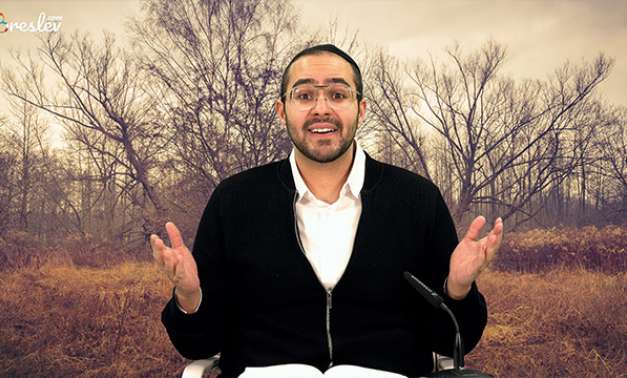
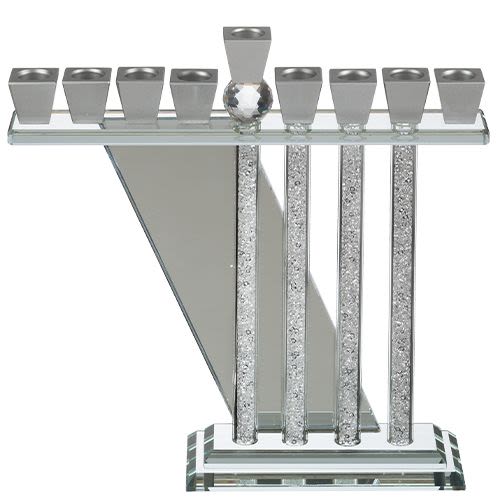
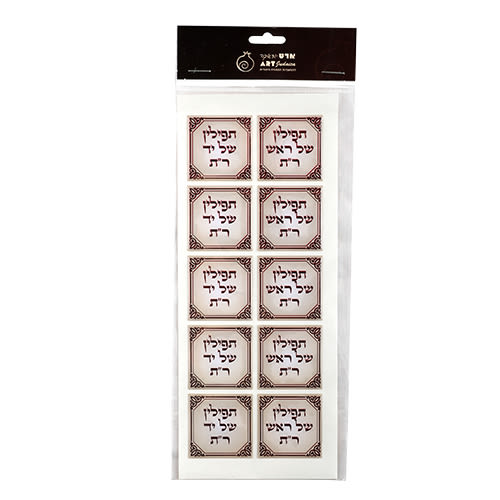


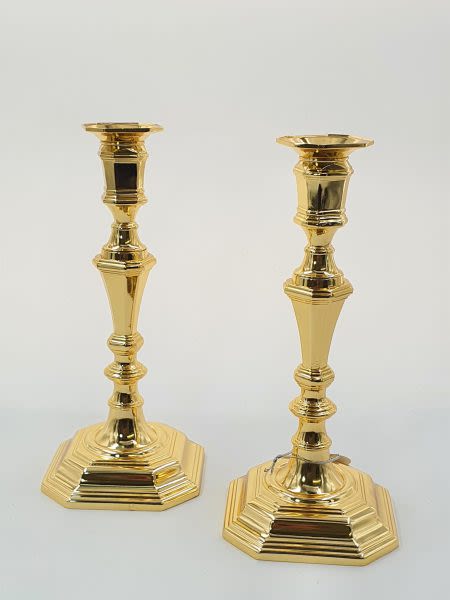
Tell us what you think!
Thank you for your comment!
It will be published after approval by the Editor.